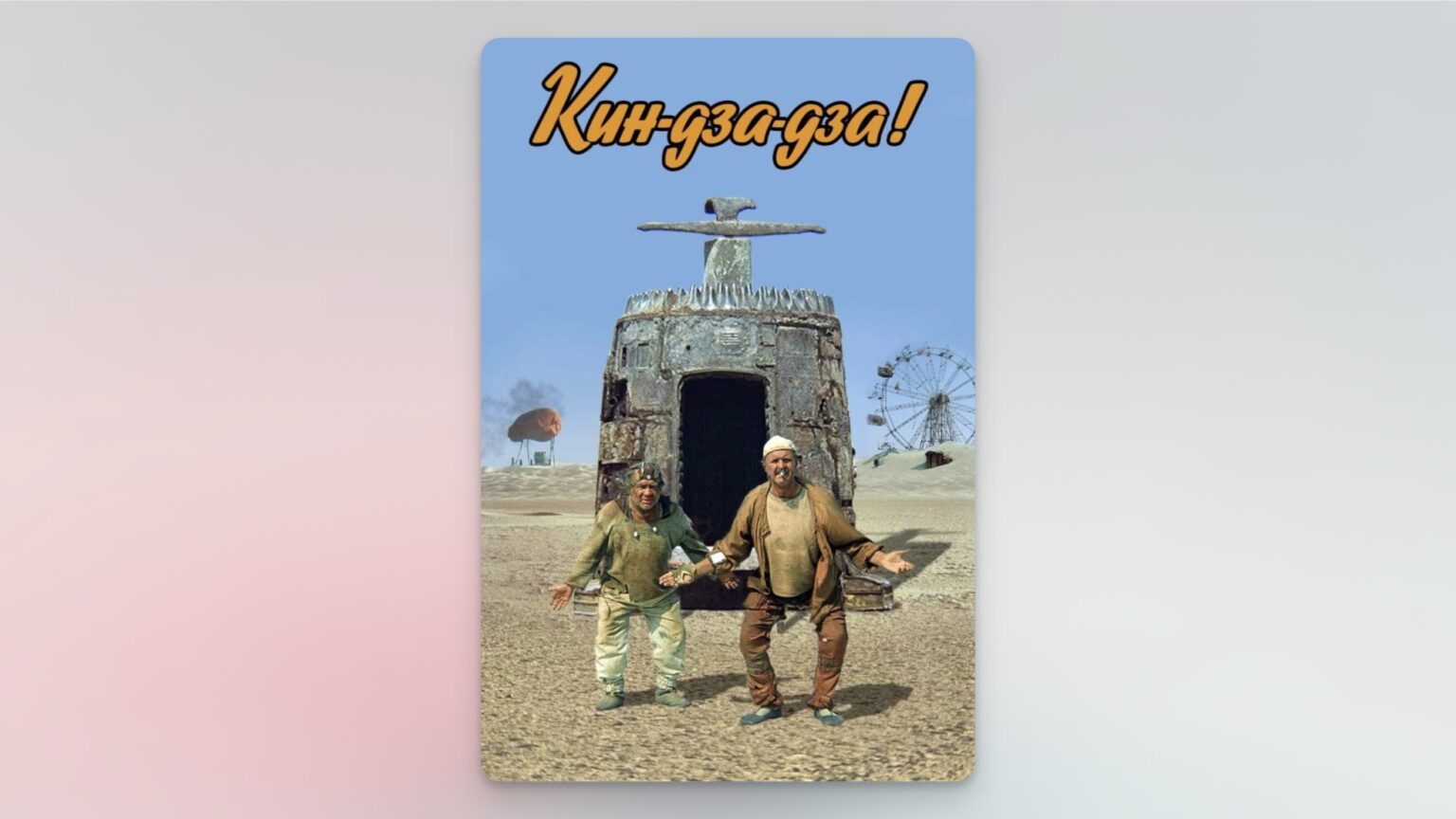The matchstick is an unremarkable object, easily overlooked, readily discarded. Yet on the desert planet Pluke, it is a prized possession. It’s a symbol of wealth and power, the very engine of the economy. This is the central paradox of Kin-dza-dza!, a 1986 Soviet film that uses the seemingly trivial to illuminate the profound.
The film follows two unwitting Muscovites, Uncle Vova, a foreman with a worldview as solid as a concrete slab, and Gedevan, a sort-of violinist with a head full of melodies, who stumble through a portal to Pluke. It’s a world of rusty spaceships, telepathic aliens, and a rigid social hierarchy. It’s here, amidst the sand dunes and scrap metal, that Daneliya, the film’s director, constructs a brilliant, if slightly off-kilter, social experiment.
For example, take the word “Ku.” On Pluke, it is the linguistic equivalent of a Swiss Army knife, a single word deployed to express a multitude of meanings. It’s a testament to the power of context and a demonstration of how meaning is shaped not just by words themselves but also by the subtle cues of intonation and body language. I suspect it’s also a sly commentary on the doublespeak and empty rhetoric that permeated Soviet society.
These sand-blasted eccentrics, the inhabitants of Pluke, are divided into two castes: the Chatlanians and the Patsaks. The distinction, determined by a flashing light on a handheld device, is arbitrary and nonsensical. Yet it dictates every aspect of their lives, from the clothes they wear to the rituals they perform. It’s a stark reminder of how easily humans can be manipulated and how readily we embrace even the most absurd social hierarchies.
But Kin-dza-dza! isn’t just a political satire. It’s a film that explores the universal human experience, our longing for connection, and our search for meaning in a world that often seems devoid of it. Adrift in this alien landscape, Uncle Vova and Gedevan become stand-ins for all of us, grappling with the complexities of human interaction, the challenges of communication, and the search for belonging.
The film’s genius lies in its ability to blend the fantastical with the familiar. The spaceships, cobbled together from junk, are a testament to human ingenuity, a symbol of our ability to create something from nothing. And the landscape of Pluke, desolate yet strangely beautiful, becomes a mirror to our own world, reflecting our anxieties about environmental degradation, social inequality, and the uncertain future of our planet.
Kin-dza-dza! is a film that rewards close attention but doesn’t demand it. It’s a film that challenges our assumptions, provokes our thinking, and stays with us… or it’s an afternoon on a playground. It’s a testament to the power of storytelling, the enduring appeal of the strange and the wonderful. Or, it’s just plain fun.
★★★★☆ 🧡

